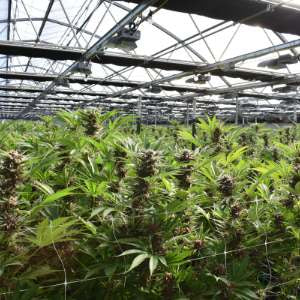As the cannabis industry thrives with the legalization of hemp, consumers are discovering new cannabinoids, including THCa. But what is THCa, and how safe is it to use? In this comprehensive guide, we'll delve into THCa's safety, effects, and where to find high-quality products.
What Is THCa?
THCa, or tetrahydrocannabinolic acid, is the raw, unheated precursor to THC. Found in abundance in live, uncured cannabis plants, THCa undergoes a process called decarboxylation when exposed to heat. This process removes the acid carboxyl group, converting THCa into THC, which is known for its psychoactive effects.
It’s important to note that THCa is non-psychoactive in its raw form, meaning it won’t produce a high until it’s converted to THC. This unique characteristic makes THCa an intriguing option for those seeking the benefits of cannabis without the immediate psychoactive effects.
Is THCa Safe to Use?
Absolutely! THCa is considered safe when sourced from reputable suppliers. However, purchasing from unverified sources can lead to potential risks, including exposure to contaminants like pesticides, mold, or heavy metals. Because THCa is relatively new and not regulated by the FDA, its quality can vary significantly.
To ensure safety, always buy from trusted dispensaries that provide lab testing results—Certificates of Analysis (COAs)—which confirm the product's potency and purity. COAs detail the cannabinoid profile and verify the absence of harmful contaminants.
Legal Considerations for THCa
Is THCa legal? Yes! Under the 2018 Farm Bill, THCa derived from hemp plants containing less than 0.3% delta-9 THC is federally legal. This creates a legal avenue for purchasing and using THCa products without concern for legal repercussions. However, individual state laws may vary, so it’s crucial to verify your local regulations regarding hemp-derived cannabinoids.
For detailed information about THCa legality in your state, check out our comprehensive state-by-state guide.
Is Smoking THCa Safe?
Yes, smoking THCa can be safe, provided you are informed and cautious. While the act of smoking any substance may impact lung health, THCa itself is safe to consume. As it heats, THCa converts to THC, which can produce psychoactive effects. New users should be mindful of this conversion to avoid overconsumption. When consumed responsibly, smoking THCa is a safe option.
Effects of THCa
When smoked, vaped, or cooked, THCa produces effects similar to traditional THC, including:
- Euphoria
- Relaxation
- Enhanced creativity
- Increased appetite (often referred to as "the munchies")
- Giggly sensations
Potential Side Effects of THCa
Like any cannabis product, THCa may cause side effects, including:
- Dry mouth
- Dry eyes
- Dizziness
- Anxiety or paranoia (especially with overconsumption)
To minimize adverse effects, start with a low dose and gradually increase it, allowing time to gauge your response.
Types of THCa Products Available
With the rising popularity of THCa, a variety of products have emerged to cater to diverse preferences and consumption methods. Here are some popular options:
1. THCa Flower
Raw hemp flower high in THCa can be rolled into joints, packed into bowls, or vaporized for consumption.
2. THCa Edibles
For those who prefer not to inhale, THCa edibles offer a long-lasting high. These come in various forms, including gummies, chocolates, and baked goods.
3. THCa Concentrates
For a more intense experience, THCa concentrates—such as diamonds, sauce, or isolates—are available. They are typically used for dabbing or vaping and are recommended for experienced users.
4. THCa Vapes
Vaping THCa provides a modern and convenient method of consumption. Available in cartridges or disposable pens, vaping is known for its quick onset and flavorful options.
5. Topicals
THCa-infused creams, balms, and tinctures provide potential benefits without psychoactive effects. These products are applied directly to the skin for localized relief.
Dosage Considerations for THCa
Finding the right dosage may require some experimentation, as individual responses can vary. Here’s a quick guide for dosing different THCa products:
- THCa Flower: Start with one or two puffs, wait 15-20 minutes to evaluate effects, and adjust as necessary.
- THCa Edibles: Begin with the smallest recommended dose (typically 2.5-5 mg of THC) and wait at least an hour or two before consuming more.
- THCa Concentrates: Start with a tiny dab or the lowest temperature on your vaporizer; wait 15-20 minutes before increasing the dosage.
Comparing THCa to Other Cannabinoids
How does THCa stack up against other cannabinoids like CBD, delta-8, or delta-9 THC? While CBD is non-psychoactive and does not convert to THC, delta-8 and delta-9 THC are psychoactive compounds. THCa is unique because it is a precursor to THC, providing a legal loophole for those seeking psychoactive effects without violating federal laws.



